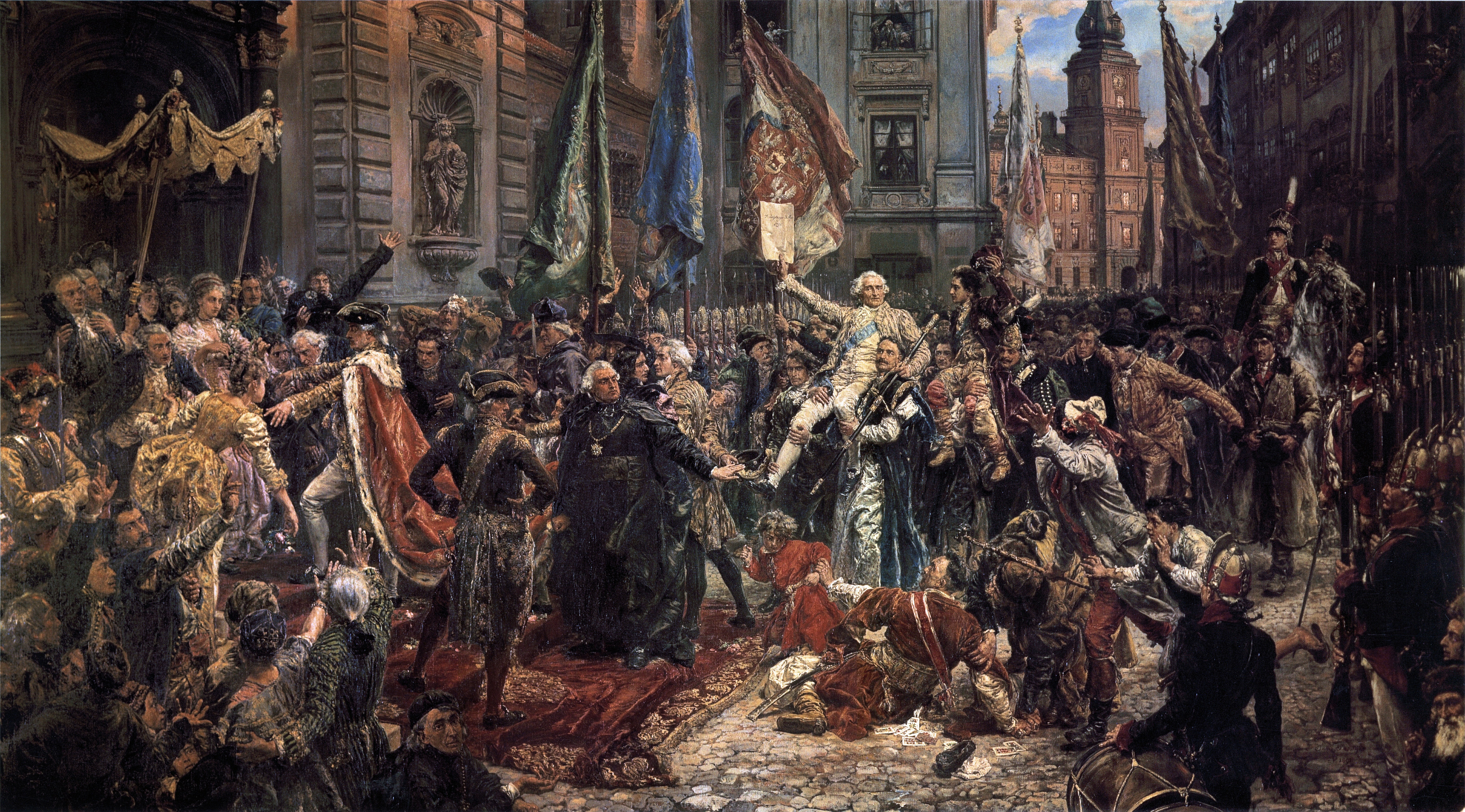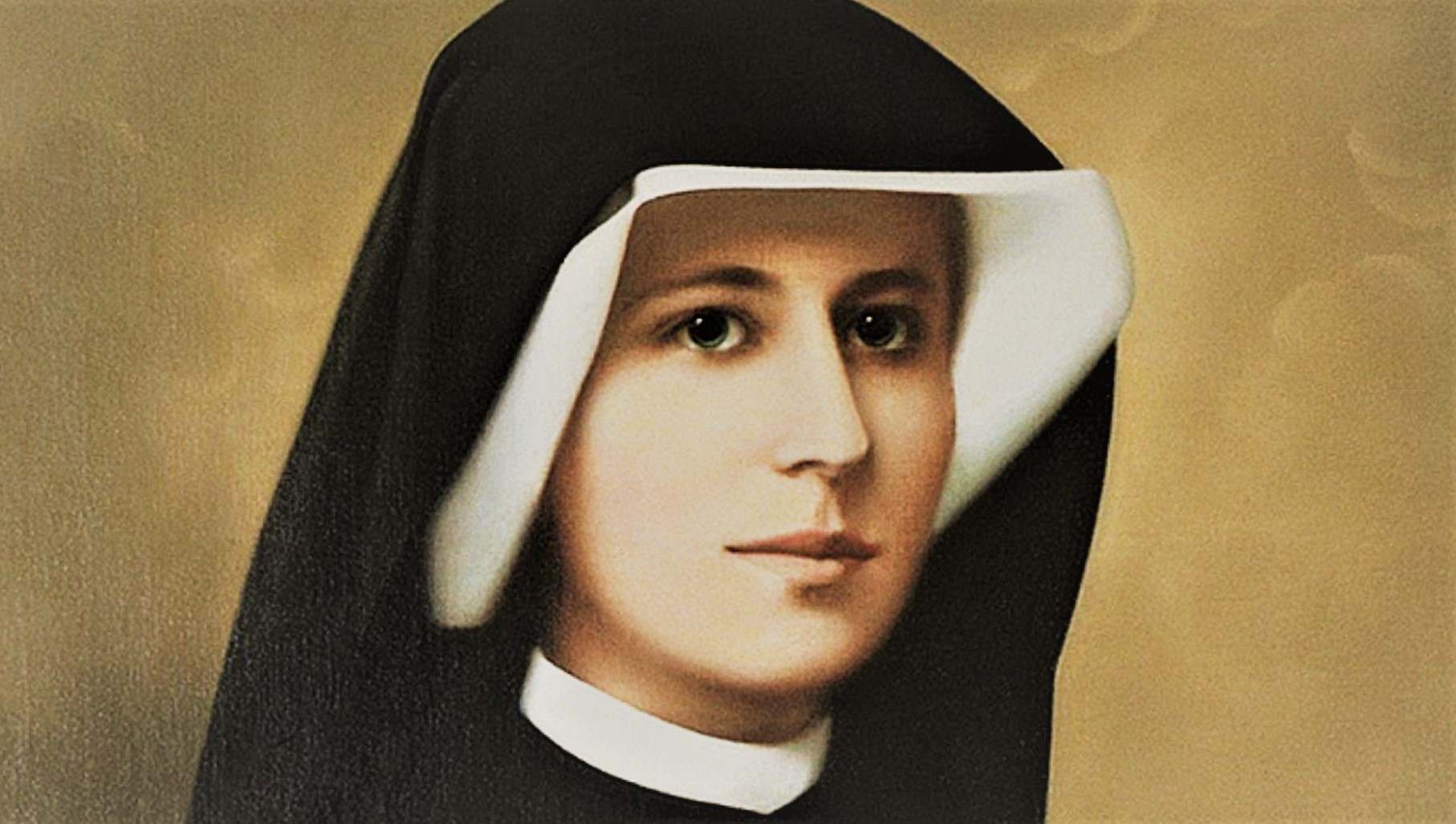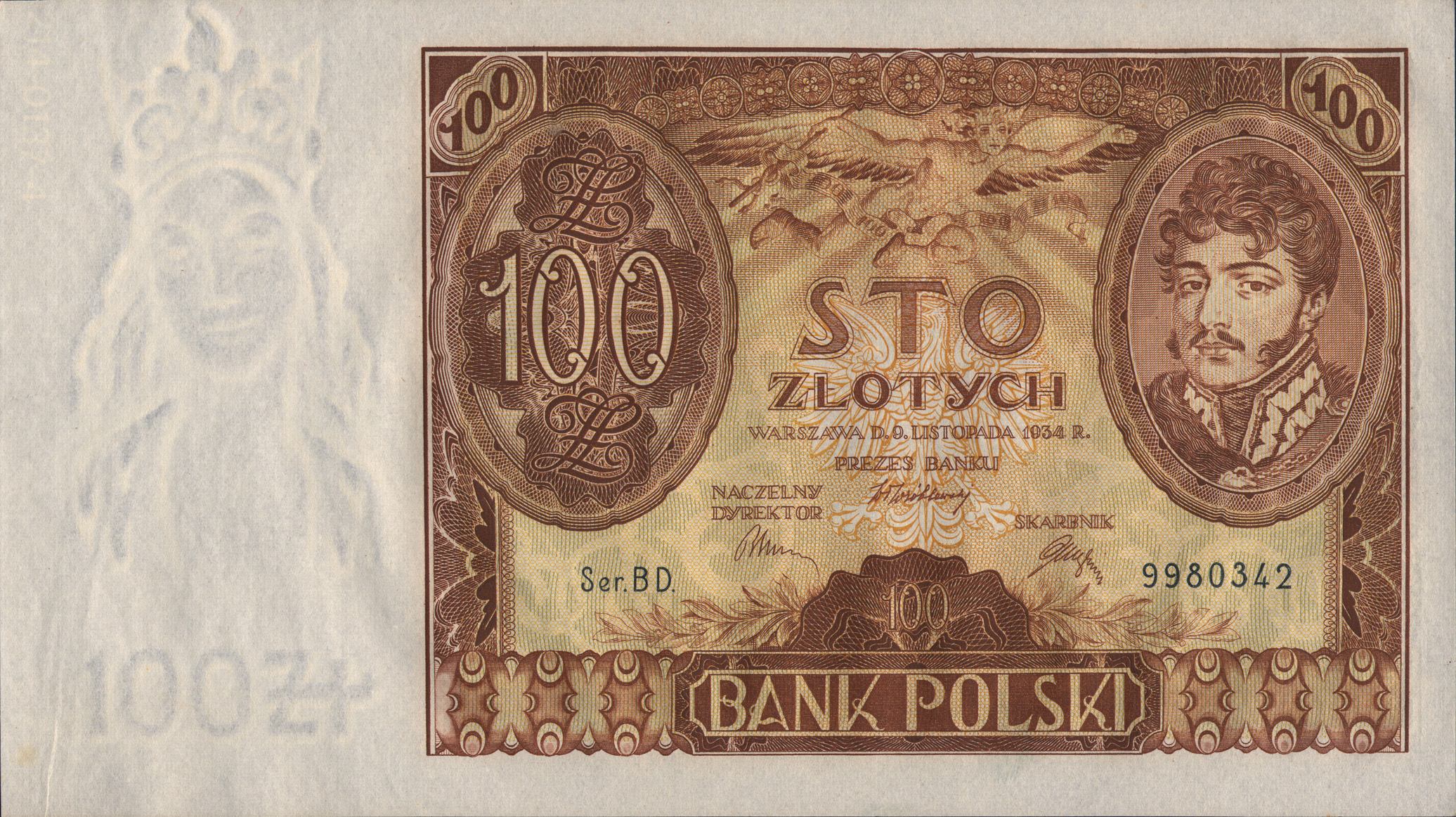Hugo Kołłątaj was a towering figure of the Polish Enlightenment: a statesman, political writer and philosopher, as well as a promoter of science and education. He was a spokesman for socio-economic and political changes and a co-creator of the Constitution of 3rd May 1791. He was born in Derkały Wielkie in Volhynia on 1 April 1750.
by Piotr Bejrowski
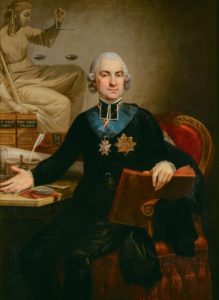
Kołłątaj studied at a school in Pińczów (Sandomierz Province) and at the Kraków Academy, where he obtained a doctorate in philosophy. Later he studied in Vienna and Rome, eventually receiving a doctorate in law and theology, and becoming an ordained priest. After returning to Poland, he became the canon of Kraków. Kołłątaj was a participant in the National Education Commission established on 14 October 1773 (a date memorialized now as National Education Day in Poland). As a member of the National Education Commission, he presented a plan to build more schools in the Polish-Lithuanian state and reform the university in Kraków. Among other acts, he sorted out the university’s financial affairs, allowed townspeople to study, and introduced lectures on Polish literature. Between 1782-1786, he also served as rector of the university.
Throughout this time, the Commonwealth was in crisis. In 1772, the first of the three partitions of Poland took place. Seven years later, Kołłątaj moved to Warsaw and brought together a team of activists and journalists – called by opponents the “smithy of Kołłątaj” – which postulated radical political and social changes in the failing state. He also became closer with the anti-royal opposition that was consolidating in the 1780s. During the Four-Year Sejm, also known as the Great Sejm (1788-1792), he belonged to the Patriotic Party, which promoted reforms, and cooperated with Potocki and Czartoryski. He co-founded the party program and played a key role in passing the Constitution of 3rd May (1791). Kołłątaj gained the confidence and consent of King Stanisław II August Poniatowski for the political reform and was one of the main authors of the text of Europe’s oldest constitution. After its establishment, he became Crown Chancellor, one of the most important royal officials.
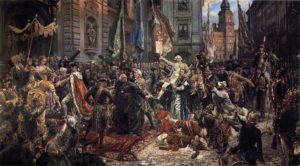
He presented the program of the Patriotic Party in letters addressed to the chairman of the parliament Stanisław Małachowski (To Stanisław Małachowski… Several letters by Anonim, 1788-1789). In 1790, he supplemented those anonymous letters with discussion of the political law of the Polish nation. He postulated, among other social reforms, the introduction of a hereditary monarchy, the abolition of serfdom, the liquidation of liberum veto and an increase in the political rights of townspeople (he was the co-author of official letters advocating for the Free Royal Cities Act addressed to the king). Based on Enlightenment ideas, he planned a further reconstruction of the Commonwealth, and wished most of all to improve the situation of the peasants. Initially, he was in favor of a foreign policy based on an alliance with England and revolutionary France. Ultimately, however, he supported the agreement with Russia. After the Confederation of Targowica (a conservative formation to overthrow the Constitution of 3rd May) and the second partition of Poland, he emigrated. In 1793, together with Franciszek Ksawery Dmochowski and Ignacy Potocki, he published the work O ustanowieniu i upadku konstytucji polskiej 3 maja 1791 roku (On the Adoption and Fall of the Polish Constitution of 3rd May 1791) in Leipzig.
When, in 1794, the Kościuszko Uprising broke out against the invaders – Russia and Prussia – Kołłątaj took part in preparations for the national uprising. He also co-authored some of its most important documents, including the Połaniec Manifesto that granted limited freedom to serfs. He also was a member of the Supreme National Council. He was in favor of continuing reforms. His supporters were called “Polish Jacobins” and he himself was known as “Robespierre in a cassock.”
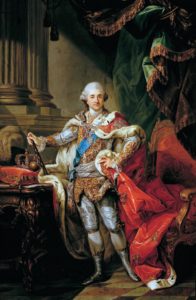
After the massacre of the Praga district by the Russian army, Kołłątaj left Warsaw. He was then arrested by the Austrians, who kept him in prison until 1802. After his release, he settled in his hometown of Volhynia, where he co-founded the Krzemieniec Lyceum, which played an important role in spreading Polish culture within the Russian partition. In 1807-1808, suspected of links with Napoleon, he was imprisoned by Tsar Alexander I.
He spent the last years of his life in the Duchy of Warsaw, a substitute Polish state created under the French protectorate. Kołłątaj existed at the margins of political life at the time and did not perform any significant role. He was a member of the Society of Friends of Sciences. In 1811, he published his last work Porządek fizyczno-moralny (Physical and Moral Order), in which he once again referred to the idea of natural order and the philosophy of French physiocrats.
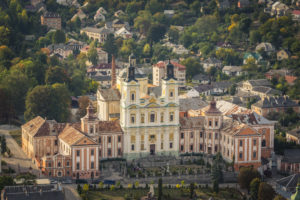
Hugo Kołłątaj died on 28 February 1812 in Warsaw. As a co-creator of the Constitution of 3rd May, he undoubtedly belongs among the most important and gifted Polish political activists of the Enlightenment. For years, he was the main spokesperson for the rights of the disadvantaged classes – the peasantry and the middle class. In favor of spreading education and radical social and political reforms, he was one of the few politicians of the time who understood that freedom was a natural law and that only quick changes – such as granting freedom to peasants – could save Poland.
Author: Piotr Bejrowski
Translation: Alicja Rose & Jessica Sirotin

